Search the Special Collections and Archives Portal
Search Results
Goussak, Gregory W.
Gregory Goussak was born January 17, 1961 in Las Vegas, Nevada. He graduated from Chaparral High School in 1979, completed his bachelor’s and master’s degree at the University of Nevada, Las Vegas, and his doctorate through the University of Phoenix.
Greg's childhood was shaped by experiences with Las Vegas' sixth grade centers, challenges with scoliosis, and especially, involvement with B'nai B'rith Youth Organization (BBYO).
Person
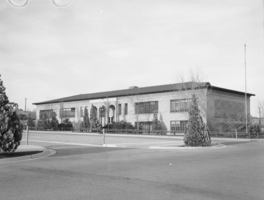
Film transparency of an elementary school, unidentified location, circa 1930-1940
Date
1930 to 1940
Archival Collection
Description
Image of an unidentified elementary school.
Image
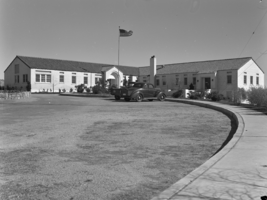
Film transparency of a hospital, unidentified location, circa 1930-1940
Date
1930 to 1940
Archival Collection
Description
Image of an unidentified hospital.
Image

Film transparency of Grace Community Church, unidentified location, circa 1930-1940
Date
1930 to 1940
Archival Collection
Description
Picture of Grace Community Church.
Image
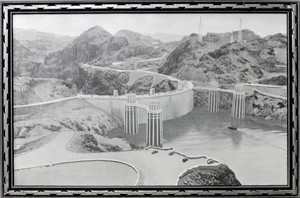
Film transparency of Hoover Dam, circa mid 1930s
Date
1935 to 1939
Archival Collection
Description
A view of Hoover Dam's upstream face and intake towers.
Image
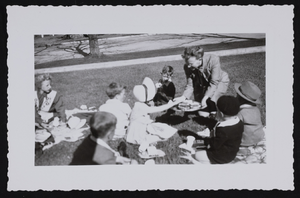
Ida B. Pittman, wife of Vail Pittman, image 005 of 007: photographic print
Date
1946
Description
Ida B. Pittman with children on the lawn of the Governor's Mansion.
Image

Juanita Greer White, Nevada assemblywoman, image 002 of 008: photographic print
Date
1980-06-05
Description
Juanita Greer White, left, assemblywoman from Nevada District #1 at Nevada State Legislature. She is pictured with James Mancuso of Reno, a political science student who was her legislative intern.
Image
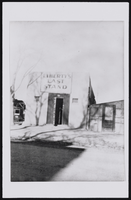
Bootleg bar: photographic print
Date
1931 to 1932
Archival Collection
Description
Liberty's Last Stand, a bootleg bar set up on Block 16, LV (1931-1932) as part of federal sting operation.
Image
Pagination
Refine my results
Content Type
Creator or Contributor
Subject
Archival Collection
Digital Project
Resource Type
Year
Material Type
Place
Language
Records Classification
